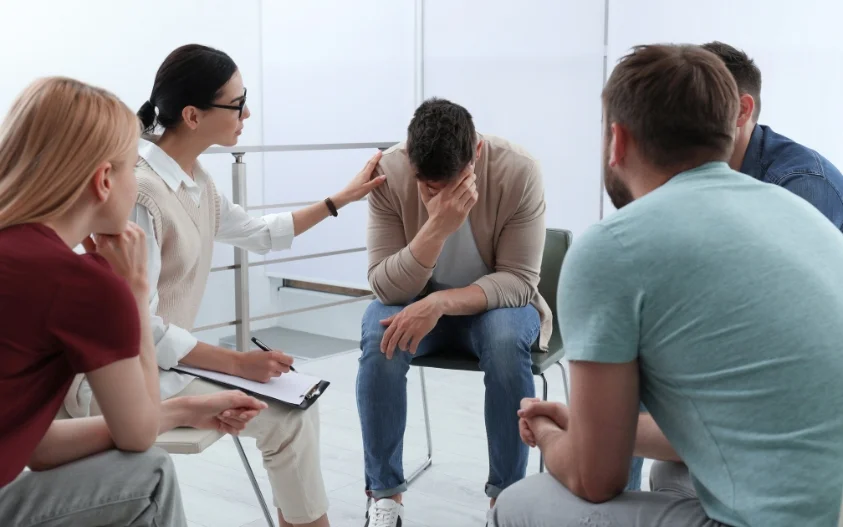24/7 Helpline:
(866) 899-221924/7 Helpline:
(866) 899-2219
Learn more about Ecstasy Rehab centers in Floyd County

Other Insurance Options

Regence

Amerigroup

Ambetter

Coventry Health Care

Multiplan
Beacon

MHNNet Behavioral Health

Optima

Holman Group

BHS | Behavioral Health Systems

Kaiser Permanente

Choice Care Network

MVP Healthcare

WellCare Health Plans

Lucent

United Health Care

Horizon Healthcare Service

Medical Mutual of Ohio

AllWell

Group Health Incorporated

Our Place – Drug and Alcohol Education
Our Place - Drug and Alcohol Education is a non-profit rehab located in New Albany, IN. Our Place - ...

LifeSpring Health Systems – Floyd County Office
LifeSpring Health Systems is a premier provider of co-occurring mental health and substance use diso...

Groups
Groups is private healthcare company providing outpatient treatment for opiate addiction using weekl...












































